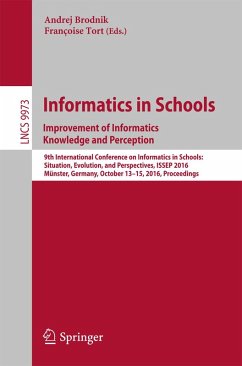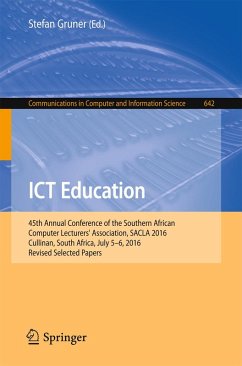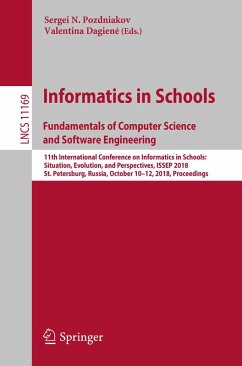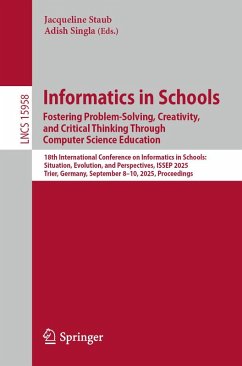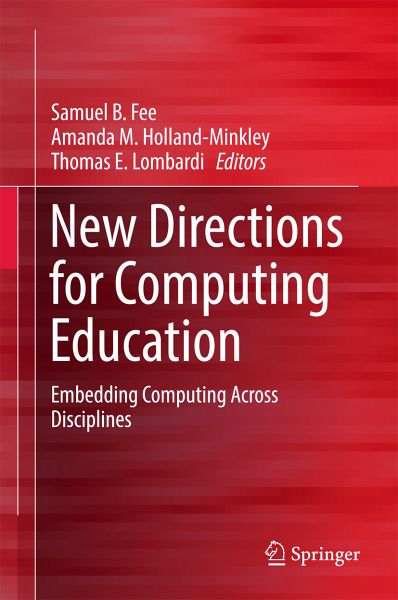
New Directions for Computing Education (eBook, PDF)
Embedding Computing Across Disciplines
Redaktion: Fee, Samuel B.; Lombardi, Thomas E.; Holland-Minkley, Amanda M.
Versandkostenfrei!
Sofort per Download lieferbar
40,95 €
inkl. MwSt.
Weitere Ausgaben:

PAYBACK Punkte
20 °P sammeln!
Offers new approaches to computing education that reflect the ubiquity of computing across science, technology and the arts
Takes a broad look at how computing fits in many disciplines, including non-scientific ones
Emphasizes the applicability of computer science topics to a diverse range of real-world problems
Provides a modern and forward-thinking text for computer science and computing education instructors
Dieser Download kann aus rechtlichen Gründen nur mit Rechnungsadresse in A, B, BG, CY, CZ, D, DK, EW, E, FIN, F, GR, HR, H, IRL, I, LT, L, LR, M, NL, PL, P, R, S, SLO, SK ausgeliefert werden.





